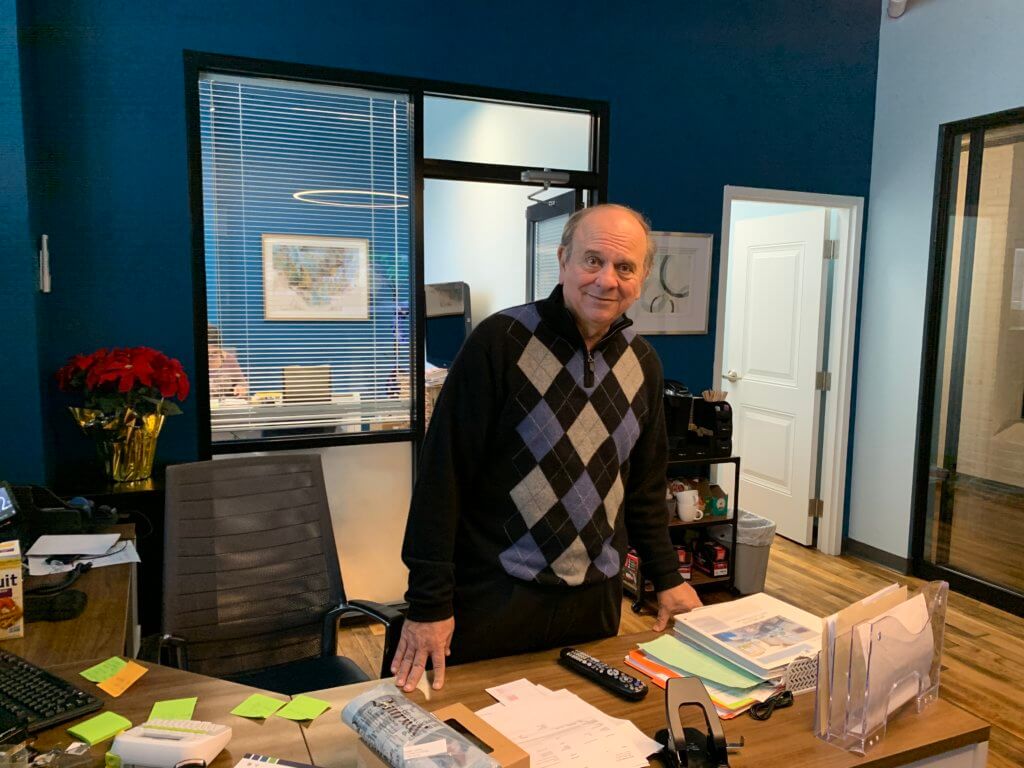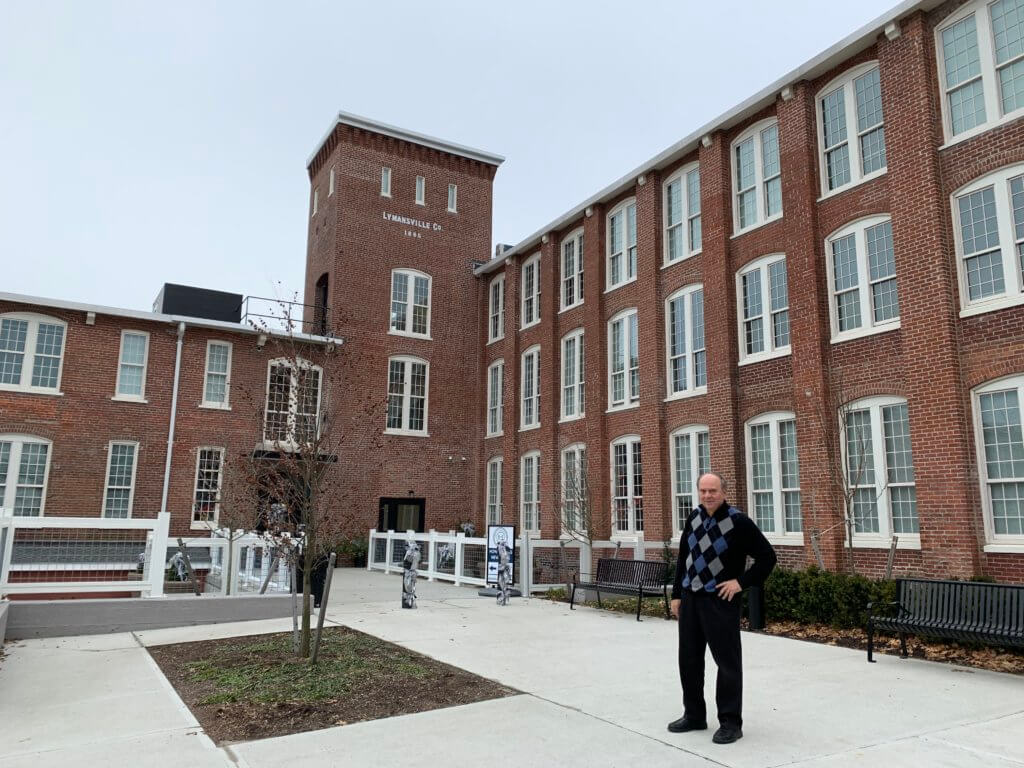Episode
Highlights
GOOSEBUMPS
“If somebody told my grandmother, a little birdie said, ‘Someday your grandson’s gonna own this building and do this with this, have this kind of a result,’ she would have thought it was crazy and impossible. This was a woman–they were poor as hell and whatever. So, that’s the American Experience. I got goosebumps just talking about the story right now. So, it’s a wonderful thing.”
—BOB TERINO

Bob Terino is pictured inside the Lyman Mill Lofts in North Providence | Photo: Alex Nunes
A PIECE OF THE PIE
“Sometimes upward mobility could take several generations–three, four generations. Often people went back home with their dreams dashed.”
—EVE
“And that set off a sort of scarcity-consciousness, the idea that there was no longer a safety valve, this idea that even if, you know, thousands or millions of however many immigrants were coming in every year, they could always just move west. There was room for them to go. Americans were now fighting for pieces of a limited pie.”
—EVE
LIVING LARGE
“I can’t tell you what an impact I’ve made in my life. Strangely enough: a lot of people kind of chuckle at this, but I am the person responsible for the popularity of fried calamari in the United States.”
—BOB TERINO

Bob Terino is pictured outside the Lyman Mill Lofts in North Providence | Photo: Alex Nunes
HOW TO BETTER YOURSELF IN AMERICA
“This is the American Story. It takes luck, skill, perseverance. But, if you want to come here and work, and you have any intelligence at all, you should be able to better yourself.”
—BOB TERINO


